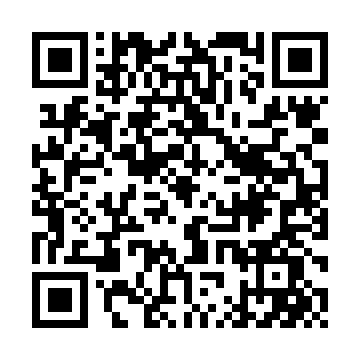
未來人類大哉問
所有偉大的史詩都需要續集,作者於2017年再推出《人類大命運》,甫上市就掀起全球知識界的關注。有人說:「這可能是近年來,最具啟發性的書籍!」本篇整理書中幾個全新的觀點,與讀者共同反思。

This is the best reason to learn history: not in order to predict the future, but to free yourself of the past and imagine alternative destinies. Of course, this is not total freedom – we cannot avoid being shaped by the past. But some freedom is better than none.”—哈拉瑞《人類大命運》
身處21世紀的我們,得問一個個前所未有的問題
Humanity is presently engineering an epochal event possibly more disruptive than past revolutions in agriculture and science. In Sapiens, Israeli historian Yuval Noah Harari described how sapiens dominated the earth. With his seminal best-selling follow up book, Homo Deus, Harari introduces us to sapiens as Gods creating a force superior to itself. God-like intelligent innovations will come to dominate us, as technology dismantles knowledge of our own humanity. New injustices will arise as the principles organizing human societies radically change. Homo Deus looks at sapiens’ past within the horizon of the present in order to liberate us from the future. The book raises questions about what controls the meaning of our life in a world where machines are superior to people in many ways.
問題1:達到真正的幸福快樂和克服生老病死,哪一個比較難?
The Gates Foundation annual reports remind us that progress in fighting human suffering is being made. The world is a more just, safer, better place in many ways. Regarding infant mortality, progress is impressive. In 1990, more than 11 million children died worldwide before their fifth birthday; now, less than 6 million perish. AIDS deaths have plunged since 2004, and malaria deaths since 2005. More people have toilets now. People smoke less cigarettes. War and violence are at historical lows and falling fast. Coca Cola induced sugar diabetes kills more than terrorism.
The arc of history bends towards a better life. Despite the gargantuan gap between the superrich and the rest of us, human beings have increased power over the threats to human life, organizing society to improve happiness, health, and our environment. Once our bodies are strong and our mind is free, there is only the superior spirit to raise in modern societies where God may or may not be dead. Harari explains how the next logical step in human history is for sapiens to replace happiness with bliss, long healthy lives with immortality, and religious belief with human divinity –Homo Deus.
問題2:人類若把選擇權交給人工智慧,是在跟魔鬼簽契約嗎?
The ethos of data, or dataism, as Harari calls it, may solve many problems but will introduce a new class of injustices. Elon Musk warned about the advances in artificial intelligence as “summoning the demon”. Yet, his technology corporation, Neuralink, attempts to fuse the mind with intelligent machinery; chip implants could make genius and cognitive speed a commodity. We might ask each other how fast their connection is to DeepMind. As philosopher Nietzsche noted, “There cannot be a God because if there were one, I could not believe that I was not He.”
"Modernity is a deal,” Harari warns. “The entire contract can be summarised in a single phrase: humans agree to give up meaning in exchange for power.” In a world where sapiens are outsmarted by machines, and the smartest machine wins, the power to dominate and define the human condition like demi-gods includes extending lifespans, possibility cheating death, becoming intelligent designers of extinct or new species, and eliminating war, disease, and famine. As power tends to corrupt, so too will sapiens be corrupted by the power to re-create or destroy humanity.
問題3:人類渴望往神的方向演化,科技加速創造「超人類」?
As innovation accelerates, it doesn’t automatically benefit everyone. The private market serves the rich first, neglecting the needs of the poor. Given this unequal distribution of innovation, Harari conceives of a future where a small group of societal elites upgrade themselves through biotechnology and genetic engineering, leaving the masses behind in a new age of social inequalities based on engineering principles rather than on wealth or education alone. As the new elites strive for superiority creating themselves a god-like species, artificial intelligence will know “us better than we know ourselves”. The future of tomorrow could be governed by godlike humans and super-intelligent robots that dismiss the rest of humanity as evolutionary rejects.
A new “race” of techno-sapiens who live longer, healthier, and more intelligent lives and protect their privileged power become masters of the data universe and control the growing underclass of useless people. Individuals could become just a collection of ‘biochemical subsystems’ telling us how we feel or how we can improve our feeling, while AI corporations and governments target and monitor sapiens through global networks of social influence and control. As AI becomes more powerful, we need to control it so that it does not control us. AI must serve humanity, rather than the other way around.
問題4:數據主義的時代,我們該關注哪些關鍵問題?
Harari wonders what human purpose will become. If a machine can design safer aircraft and write more moving poetry than sapiens, what is the point of life? If a guaranteed income and a super welfare education state cares for the world’s children, including a nutrition optimization algorithm making meal decisions, what is the role of the parent? Harari suggests that our new purpose requires us to develop a new religion—using the word in a much broader sense, something like “organizing principles that direct our lives”. In an eloquent encapsulation of the meaning of life, George Bernard Shaw noted that modern people need only concern themselves with two things in the broad sense, politics and religion. Politics being our contribution to society, and religion being our preparation for death. More earthly goals, what George Shaw might refer to as religion and politics in the broad sense, includes doing what we love, and getting rid of sickness, hunger, injustice, and war. A history that examines the present means we understand the meaning of life liberated from the limitations of the past.
作者對未來做預言,有人會覺得這是天馬行空的想像,然而尼采也如是說…
“The crowd of influences streaming on the young soul is so great, the clods of barbarism and violence flung at him so strange and overwhelming, that an assumed stupidity is his only refuge.”―尼采,《歷史對於人生的利與弊》
文/Arthur Lauk
本文收錄於英語島English Island 2018年3月號
訂閱雜誌
| 加入Line好友 |  |

 擔心生理健康,心理卻出問題?
擔心生理健康,心理卻出問題?